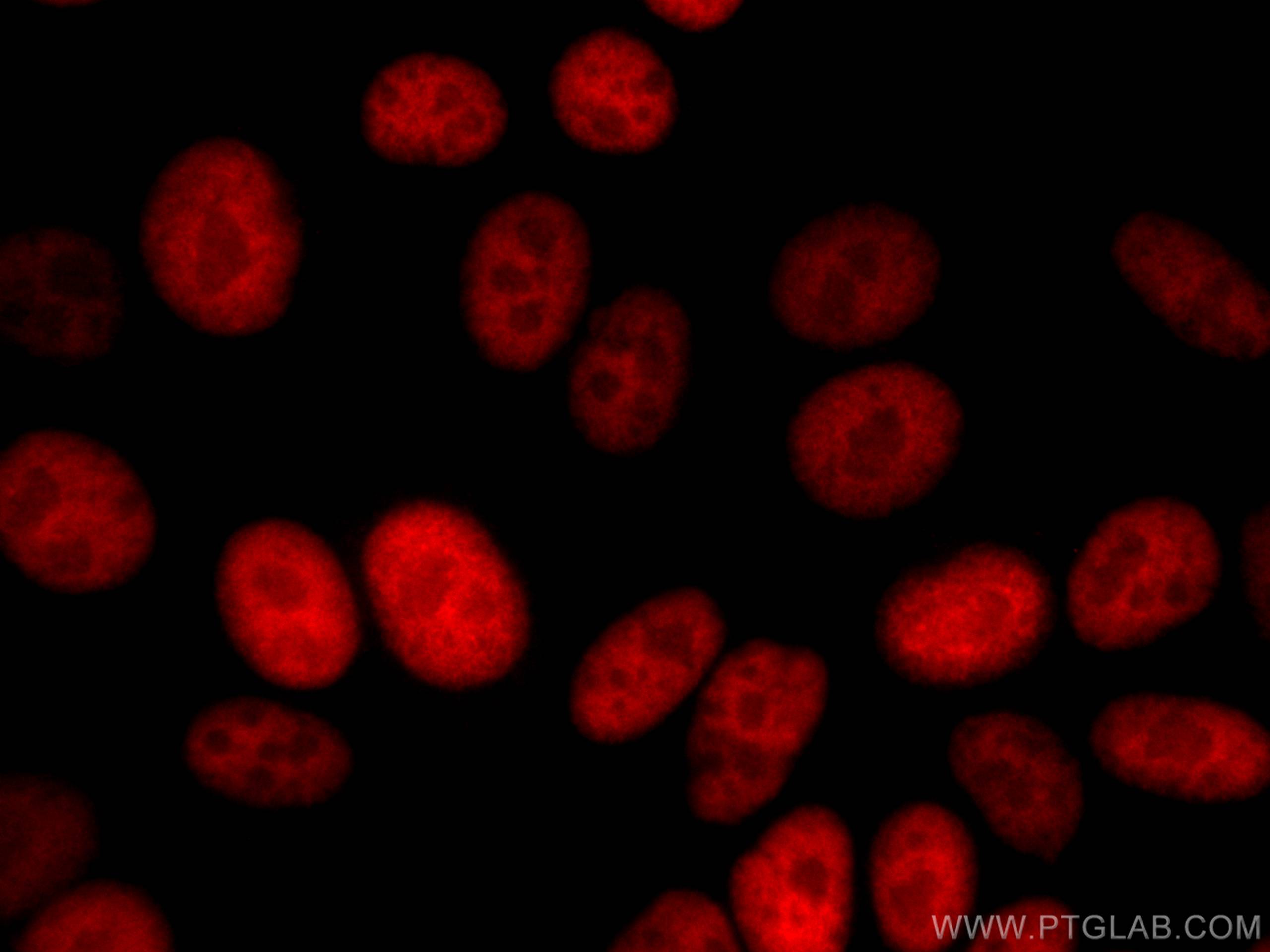Transketolase Monoklonaler Antikörper
Transketolase Monoklonal Antikörper für IF
Wirt / Isotyp
Maus / IgG2b
Getestete Reaktivität
human
Anwendung
IF
Konjugation
CoraLite®594 Fluorescent Dye
CloneNo.
3E2F3
Kat-Nr. : CL594-66016
Synonyme
Galerie der Validierungsdaten
Geprüfte Anwendungen
| Erfolgreiche Detektion in IF | HepG2-Zellen |
Empfohlene Verdünnung
| Anwendung | Verdünnung |
|---|---|
| Immunfluoreszenz (IF) | IF : 1:50-1:500 |
| It is recommended that this reagent should be titrated in each testing system to obtain optimal results. | |
| Sample-dependent, check data in validation data gallery | |
Produktinformation
CL594-66016 bindet in IF Transketolase und zeigt Reaktivität mit human
| Getestete Reaktivität | human |
| Wirt / Isotyp | Maus / IgG2b |
| Klonalität | Monoklonal |
| Typ | Antikörper |
| Immunogen | Transketolase fusion protein Ag16779 |
| Vollständiger Name | transketolase |
| Berechnetes Molekulargewicht | 68 kDa |
| GenBank-Zugangsnummer | BC009970 |
| Gene symbol | TKT |
| Gene ID (NCBI) | 7086 |
| Konjugation | CoraLite®594 Fluorescent Dye |
| Excitation/Emission maxima wavelengths | 588 nm / 604 nm |
| Form | Liquid |
| Reinigungsmethode | Protein-A-Reinigung |
| Lagerungspuffer | BS mit 50% Glyzerin, 0,05% Proclin300, 0,5% BSA, pH 7,3. |
| Lagerungsbedingungen | Bei -20°C lagern. Vor Licht schützen. Nach dem Versand ein Jahr stabil. Aliquotieren ist bei -20oC Lagerung nicht notwendig. 20ul Größen enthalten 0,1% BSA. |
Hintergrundinformationen
Transketolase is a key pentose phosphate shunt enzyme that plays an important role in the production of reducing equivalents and pentose sugars. Decreased activity of transketolase has been found in patients with Alzheimer's disease and thiamine deficiency. In addition, as an important biocatalyst in stereo-specific carbon-carbon bond synthesis, transketolase has been widely used in industry to produce aromatic products.
Protokolle
| Produktspezifische Protokolle | |
|---|---|
| IF protocol for CL594 Transketolase antibody CL594-66016 | Protokoll herunterladen |
| Standard-Protokolle | |
|---|---|
| Klicken Sie hier, um unsere Standardprotokolle anzuzeigen |


